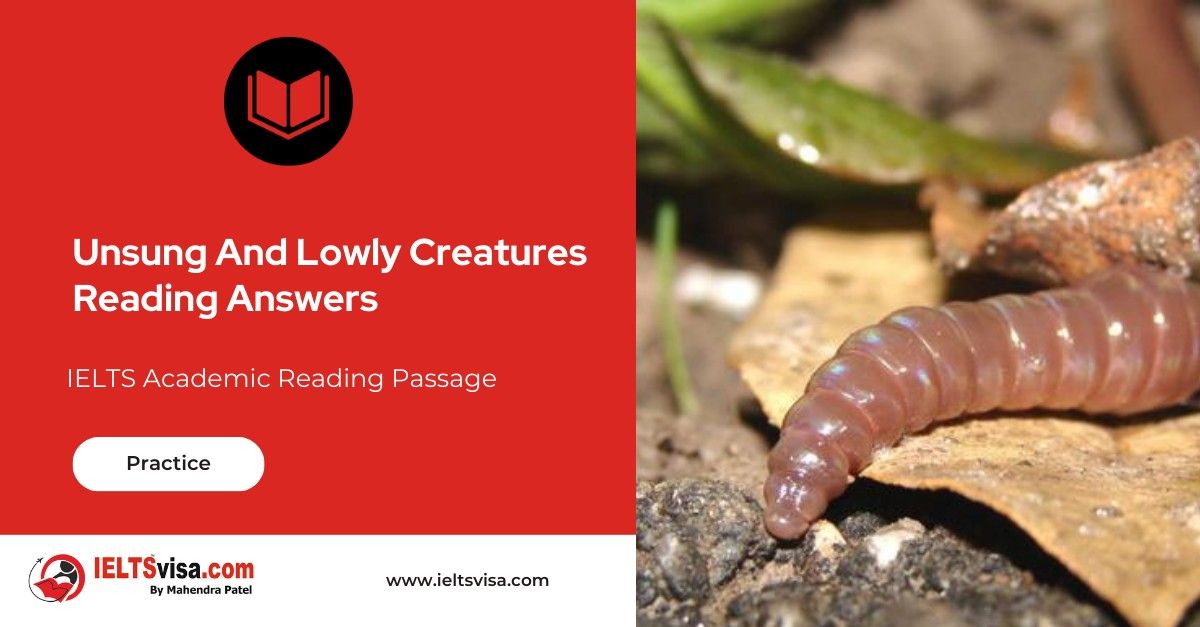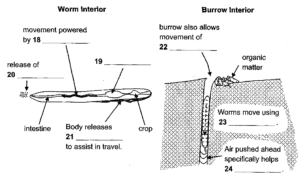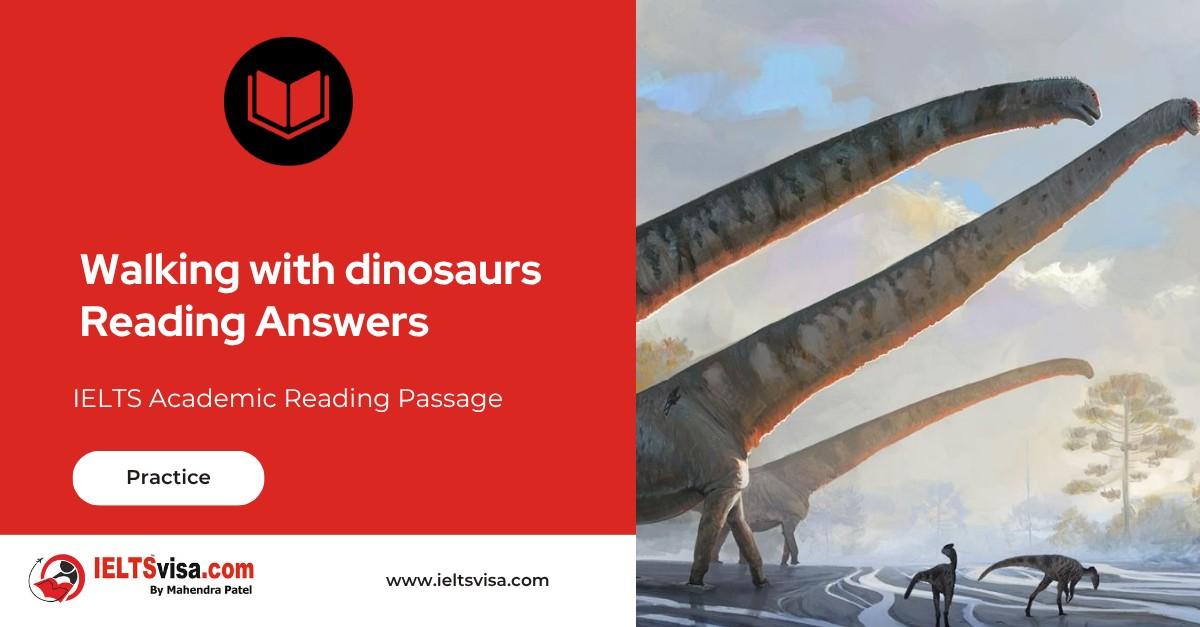Unsung And Lowly Creatures Reading Answers
IELTS Academic Reading Passage
A. Earthworms are not creatures likely to attract much attention. Socrative, silent, slow-moving, and featureless, almost no one would ever think. Let’s quote Charles Darwin, who wrote: ‘It may be doubted whether there are many other animals witches have played so important a part in the history of the world as have these lowly-organised creatures’.
B. That is high praise indeed for what is basically a slimy, muscular, moist, segmented tube. This tube is also hermaphroditic, meaning that there are both male and female segments in the one creature. Some segments contain testes, others eggs, release ooze, exchange, and store fluids, and then a long complicated process eventually leads to the secretion of an egg case. From this, small but fully-formed worms will emerge, reaching full size in about one year, and living for one or two years after that.
C. Yet earthworms are rarely seen, spending as they do their whole lives underground. Only after heavy rains can they sometimes be found on the surface, apparently stranded. Three hypotheses are put forward to explain this. The stormwater may flood their burrows, forcing them upwards. Alternatively, the worms may be taking advantage of the wet conditions to either travel more quickly through the open air (compared to burrowing beneath the ground), or otherwise to meet and mate. Whatever the case, if they find themselves on concreted, rocky, or hardened earth, they are effectively trapped. If this is during dawn, in high summer, or in the daytime, these earthworms quickly die due to bird predation or dehydration.
D. Normally, however, worms quietly go about their hidden business, and this often leads to an underestimation of their actual numbers. Darwin himself thought that arable land contained about 50,000 worms per acre, yet modern research has suggested that the figure could reach as high as almost two million. Putting this another way, the weight of earthworms beneath the soil is often greater than that of the cows horses, and sheep arezing upon is surface. And those worms are just as hungry. Worms do, in fact, have a small mouth and a simple but effective digestive system, similar to the animals above, Food is sucked into the body, then pushed along the length of the worm through muscular action, passing through the crop, gizzard, intestine, and finally the anus.
E. Perhaps surprisingly, it is this constant eating which so benefits the chemistry of the soil. Earthworms feed on undecayed leaf litter and organic matter. They pull pieces down into their burrows, shred them into smaller parts, and then consume each of these, along with small soil particles. In the worms’ gut, everything is ground into a a fine paste, to be eventually excreted, releasing essential minerals in an easily accessible form. One single worm may produce over four kilograms of this diested paste per year. Multiply that by a million worms, and one can understand Darwin’s comment about ‘unsung creatures which, in their untold millions, transformed the land’.
F. The other great benefit relates to earthworms’ search for food. It might surprise many to know that these creatures are very mobile, moving to the surface then down into the safer depths on a daily basis. Aided by the secretion of lubricating mucus, they push themselves through the soil using waves of bodily contractions, which alternately shorten and lengthen their form. The point is, water can also move through their tunnels. More importantly, as the worms travel, they push air in and out of the soil on a continuous basis. In the same way that animals need oxygen, so too do the myriad micro-organisms in the soil. Thus, without worms, the ground would become waterlogged, airless, and less productive for farming purposes.
G. Naturally, with so many worms in the soil, they form the base of many food chains. Not only birds, but also some mammals, such as hedgehogs, moles, and even larger ones, such as foxes and bears, will actively dig into the ground of worms. Such predation is natural, and has little effect on worm populations. However, the use of certain fertilisers is a different case. Earthworms depend on the temperature, texture, and moisture content of the soil, but it is its acidity to which they are most sensitive. Nitrogenous fertilisers can raise this to levels fatal to these creatures, often causing disastrous drops in numbers. The more ecologically-awareness farmer avoids such chemicals, and regularly adds a surface mulch of organic matter raising worm numbers for the natural benefit of both soil and man.
Questions 14-17
Choose the correct letter, A, B, C, or D.
- Charles Darwin thought that worms
A were only moderately important.
B were organised.
C liked arable land.
D numbered in the many millions.
- A single worm
A is either male or female.
B has many segments.
C is a complicated organism.
D lives for about a year.
- Stormwater may possibly
A clean out worm burrows.
B slow down worms.
C help worms encounter others.
D harden the earth.
- Grazing animals
A often weigh less than the worms below.
B are hungrier than the worms below.
C have very different digestive systems from worms.
D have simpler digestive systems than worms.
Questions 18-24
Complete the diagram.
Choose NO MORE THAN TWO WORDS from the passage for each answer.

- ______
- ______
- ______
- ______
- ______
- ______
- ______
Questions 25-26
Complete the sentences.
Choose NO MORE THAN TWO WORDS from the passage for each answer.
Worm numbers will especially fall when the soil has high 25. _______
Adding mulch to the soil shows 26. _______

Solution For: Unsung And Lowly Creatures
Reading Answers
| 14 D | 15 B |
| 16 C | 17 A |
| 18 muscular action | 19 gizzard |
| 20 essential minerals | 21 lubricating mucus |
| 22 water | 23 bodily contraction(s) |
| 24 (soil) micro-organisms | 25 acidity |
| 26 ecological awareness |
Review and Practice
- Regularly practice with IELTS reading samples and time yourself to get used to the pressure of the exam.
- Review your mistakes to understand where you went wrong and how to avoid similar errors in the future.
Our Books
Master IELTS Speaking Part 1
IELTS Writing Task 1 Book
IELTS Writing Task 2 Book
Unsung And Lowly Creatures Reading Answers Explanation
Comin Soon
Practice IELTS Other Modules
IELTS Listening
The IELTS Listening test assesses how well you can understand spoken English in various contexts. It lasts about 30 minutes and is divided into four sections with a total of 40 questions. The listening tasks become increasingly difficult as the test progresses.
IELTS Academic Reading
The IELTS Academic Reading section assesses your ability to understand and interpret a variety of texts in academic settings. It is designed to evaluate a range of reading skills, including skimming for gist, reading for main ideas, reading for detail, understanding inferences, and recognizing a writer's opinions and arguments.
IELTS Speaking
The IELTS Speaking test assesses your ability to communicate in English on everyday topics. It lasts 11-14 minutes and consists of three parts: introduction, cue card, and a discussion based on the cue card topic.
IELTS General Reading
IELTS General Reading tests your ability to understand and interpret various types of texts. Here are some key areas and types of content you can expect to encounter in the reading section, along with tips for effective preparation.
IELTS Academic Writing Task 1
In IELTS Academic Writing Task 1, you are presented with a visual representation of information, such as graphs, charts, tables, or diagrams, and you are required to summarize, compare, or explain the data in your own words.
IELTS General Writing Task 1
In IELTS General Writing Task 1, you are required to write a letter based on a given situation. The letter can be formal, semi-formal, or informal, depending on the prompt. Here’s a breakdown of the key components to include in your letter
IELTS Academic Writing Task 2
In IELTS Academic Writing Task 2, you are required to write an essay in response to a question or topic. Here’s a guide to help you understand the essential elements of this task
IELTS Exam Tips
To succeed in the IELTS exam, practice regularly, familiarize yourself with the test format, improve your vocabulary, develop time management skills, and take mock tests to build confidence.
Grammer for IELTS
Grammar is the foundation of effective communication in English. Understanding tense usage, subject-verb agreement, and sentence structure enhances clarity and coherence in writing and speaking.
Vocabulary for IELTS
Vocabulary plays a crucial role in the IELTS (International English Language Testing System) exam, especially in the Speaking and Writing sections. Here’s an overview of why vocabulary is important and how it impacts your performance
RECENT IELTS SAMPLES QUESTIONS AND ANSWERS
Walking with dinosaurs
Peter L. Falkingham and his colleagues at Manchester University are developing techniques that...
Money as the Unit of Amount Reading Answers
The most difficult aspect of money to understand is its function as a unit of account. In...
WEATHERING IN THE DESERT
In the deserts, as elsewhere, rocks at the earth's surface are changed by weathering, which...
Nature on Display in American Zoos
The first zoo in the United States opened in Philadelphia in 1874, followed by the Cincinnati...
Can We Prevent the Poles From Melting
Such is our dependence on fossil fuels, and such is the volume of carbon dioxide we have...
Air conditioning the earth reading answers
The circulation of air in the atmosphere is activated by convection, the transference of heat...













